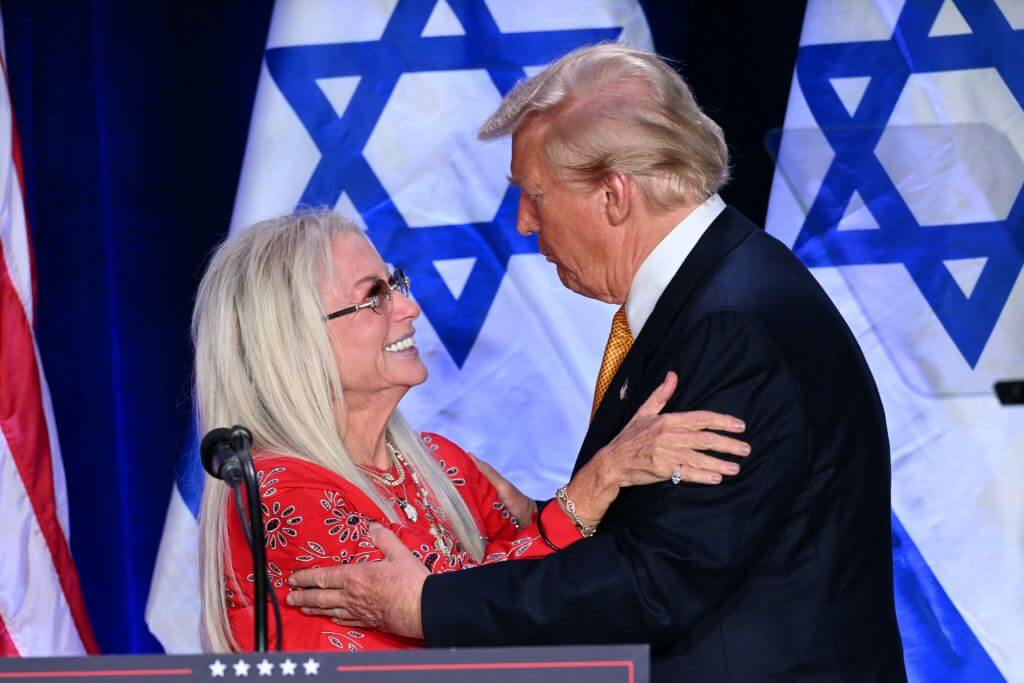English Literature, in the Land of Aleph and Bet
It’s a warm October afternoon, and 11 of us are in an airy classroom on the third floor of a university high-rise, talking about a draft of a short story. The writer, a 30-something journalist with a New York accent, quietly takes notes. The prose is strong, we say, the premise promising: a newly discharged soldier taking up with the sister of his best buddy from the army, who was killed in action only months earlier. But the friend’s ghost metaphorically hovers, and the soldier’s motives for the relationship with the young woman are complicated, intriguing, murky. Too murky, we tell the author. If you can figure out what’s driving your character, we say, you’ll have a terrific piece of fiction. The writer, satisfied, puts down his pen, and we all troop downstairs for coffee before returning for the second hour: a close look at a couple of gems by Canadian writer David Bezmozgis and that grand dame of fictional voice, Grace Paley, to see how they did it.
A typical workshop in a Master of Fine Arts program anywhere, except this one happens to be in Tel Aviv. It’s the Shaindy Rudoff Graduate Program in Creative Writing at Bar-Ilan University, and the writing — as well as all the reading and discussion — is in English.
English? What would Eliezer Ben-Yehuda say?
Call it literary globalization or simply legitimizing what has been going on under the official radar for years, but there is a growing body of literature originally written in English coming out of Israel. It’s being written by longtime olim, native English speakers who have lived in Israel for decades, such as award-winning poet Shirley Kaufman and popular novelist Naomi Ragen, as well as students like those in the Bar-Ilan classroom, some of whom have come to the country specifically for the opportunity to focus on the craft of writing while living in an intensely Jewish and Israeli world.
It’s a world I had a chance to view firsthand in the fall of 2007 as the visiting writer in the Bar-Ilan program, which is housed in the university’s English department and named for its founding director, who passed away in 2006. The program was decidedly not designed to be a clone of graduate programs in the States, a New York University or Warren Wilson merely transplanted to Tel Aviv. Included in its curriculum, for instance, is a Jewish arts seminar, which looks at the wellsprings of Jewish creativity through Jewish film, Talmud as literature and the visual arts.
Despite the long-standing — and quintessentially Zionist — ethos that says writers in Israel should work only in Hebrew, prominent Israeli writers such as Etgar Keret, Aharon Appelfeld and Michal Govrin enthusiastically support the Bar-Ilan workshops, according to Judy Labensohn, the program’s coordinator and herself a published essayist and short-story writer. Nor does creative expression in a non-Hebrew language and literature interfere with one’s assimilation, as the purist Hebraists might have thought, says Labensohn, who is fluent in Hebrew. “I believe the best way to integrate into Israel is to embrace, rather than abandon, one’s past, which means nourishing one’s mother tongue along with learning Hebrew,” Labensohn wrote in an e-mail. “I, for one, was not willing to leave English behind when I left Kennedy Airport in 1967. I was not about to exchange Emily Dickinson for Rachel the Poetess, nor some Hebrew journalist, however prominent, for Joan Didion.”
My Bar-Ilan students came from far-flung places, many with complicated histories that illustrate the endless push-and-pull between Israel and the Diaspora. One talented young woman was born to an Australian mother and an Israeli father who had met on a kibbutz in the 1970s but had returned to Sydney. Two journalists making the transition to fiction had been brought from America in their early teens and dropped into the local school system to sink or swim; they’d done their university in the States but had come back to live near their families. Another woman had grown up in New York in a Hebrew-speaking home, the child of Israeli transplants.
The most poignant example of this complex Jewish tapestry was the one student whose English had a subtle but unmistakably foreign edge. Raised in Berlin in the 1980s by Polish-born Jews whose parents had remained in Eastern Europe after the Holocaust, she had gone to America for college. But though she spoke four languages — Polish, German, English and Hebrew — there was not a one in which she didn’t have an accent. “I have no mother tongue,” she once told me sadly. These students, as well as other Israeli writers I met originally from the English-speaking world, spoke openly about the deep relief they felt when tapping their creative selves by writing in English. This was true of even the most successfully acculturated olim.
All this made me wish these writing communities had been around in 1978, when I first came to Israel as a young lawyer with a secret passion for turning out poetry and prose. I stayed in the country two-and-a-half years, working and studying but mostly typing away alone in my apartment on HaPalmach Street in Jerusalem, on a friend’s crummy little portable, never showing the pages to anyone. It was my refuge, a respite after the long, draining days navigating in a Hebrew-speaking world, trying to master that demanding tongue. Into my third year, I gave up and went home. I rebuilt my life and put aside the writing for 10 years. Eventually, the need to make stories became too strong to ignore. I have stopped practicing law and now write and teach, the Boston suburbs my home. I feel lucky to have this life. But during my months in Tel Aviv, I sometimes asked myself what might have happened if these communities had been there 25 years ago, when I was pecking away at those sticking keys on my friend’s tinny Royal. Had they existed then, who knows how the road would have gone?
Joan Leegant is the author of “An Hour in Paradise” (W.W. Norton & Company), which won the Edward Lewis Wallant Award for Jewish Fiction. She teaches at Harvard University.
The Shaindy Rudoff Graduate Program in Creative Writing is accepting applications in fiction and poetry. For details, see the Web site, www.biu.ac.il/HU/en/cw/Contact.htm, or contact Judy Labensohn, coordinator, at [email protected].
A message from our Publisher & CEO Rachel Fishman Feddersen

I hope you appreciated this article. Before you go, I’d like to ask you to please support the Forward’s award-winning, nonprofit journalism so that we can be prepared for whatever news 2025 brings.
At a time when other newsrooms are closing or cutting back, the Forward has removed its paywall and invested additional resources to report on the ground from Israel and around the U.S. on the impact of the war, rising antisemitism and polarized discourse.
Readers like you make it all possible. Support our work by becoming a Forward Member and connect with our journalism and your community.
— Rachel Fishman Feddersen, Publisher and CEO





























